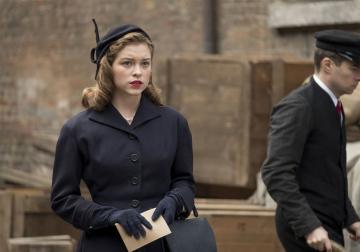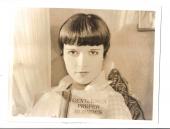'Red Joan' explores real-life spy's recruitment, life and dilemma
All spies are traitors and patriots simultaneously. And espionage, safe to say, is one of the more stressful lifetime occupations, as the Joan Stanley story illustrates.
“Red Joan,” director Trevor Nunn’s smartly done biopic-thriller period piece, opens with grandmotherly Joan in her 80s (Judi Dench) stunned by a knock on the door from MI5, the British equivalent of the FBI/CIA. It’s the year 2000, and her name has surfaced in a recent revelation of ancient crimes: She’s under arrest for treason.
Joan’s lawyer-son (Ben Miles) is outraged.
“I heard this ridiculous report that you might be involved with a spy ring!” he says when he reaches her. At which point, we flashback to…
- Starring: Judi Dench, Sophie Cookson, Tom Hughes, Stephen Campbell Moore.
- Rating: R for brief nudity and sexuality.
Young Joan (Sophie Cookson) at Cambridge in 1938, a brilliant physics student doing what most of her idealistic contemporaries were doing at the time: attending rallies, watching Eisenstein movies, supporting the Republicans against Franco in the Spanish Civil War and joining the worldwide fight against fascism.
Among her fellow leftists is glamorously flirtatious Sonya (Tereza Srbova) and Sonya’s dashing cousin Leo (Tom Hughes), Jewish emigres from Germany. He’s in her face a lot, literally. Shy Joan falls in love with their exciting lifestyle — and with Leo. Do they truly love her back, or might they be grooming her for some sort of political service?
Upon her graduation, the war has begun and Joan is hired as an assistant to scientist Max Davis (Stephen Campbell Moore), head of a secret government research project, to do typing and filing — but also to provide her valuable physics expertise in reviewing the project’s ongoing results. Max's team is trying to “touch the ghost of matter” — assess the nuclear density of certain radioactive isotopes for a self-sustaining chain reaction.
In plain language: to develop an atom bomb before the Americans do.
“Aren't we all allies — Britain, America, Russia?” Joan asks.
Yes and no — mostly no.
Soon enough, a quiet “clerk” is recruited to transfer nuclear secrets to the Soviet Union, something she’ll struggle to explain to her horrified son and — 75 years later — to us.
“Red Joan” is based on Jennie Rooney’s novel which, in turn, is loosely based on the life of Melita Norwood (1912-2005), the “Granny Spy” who supplied Russia with nuclear secrets from her seemingly menial secretarial job at the British Non-Ferrous Metals Research Association — a fabulously dull name for a hugely important enterprise. When finally unmasked, the 87-year-old great-grandmother was never prosecuted and died soon after. She’s considered the most important agent ever recruited by the USSR, more valuable than even Kim Philby and his infamous Cambridge Spy Ring.
As “the Bolshevik of Bexleyheath” (the London suburb where Norwood lived for 40 years), the great Dame Dench is excellent, as always, but her screen time is minimal. The real star of the show is gorgeous Sophie Cookson (of “Kingsman: The Secret Service” and “Hunstman: Winter’s War”), with her diffidently expressive eyes and gaze.
Srbova as Sonya is an over-the-top Mata Hari, but Hughes as Leo is urgently believable: “We need documents — information!” he insists. “Steal it?” says Joan. “No, share it,” he begs, “We can change the world. …We’ll rebuild civilization from scratch.”
Director Nunn has a remarkable theater career to his credit as artistic director of the Royal Shakespeare Company and winner of three Tony awards (for “Cats,” “Les Miz” and “Nicholas Nickleby”). This is his first film-directing gig in more than 20 years, and there’s no denying it has certain stagebound qualities. But that may be its strength. No James Bond business with this spy tale. Just the low-key account of an “ordinary” young woman who was in fact extraordinary — just a “dumb girl,” like Hedy Lamarr, who believed she was right in doing what she did in the hot and cold wars alike and never took a shilling in payment for it.
I’m thinking of the Rosenbergs — same crime, different ending. The spy who’s caught gets executed, the one who escapes gets his picture on a Russian postage stamp.
The longest-serving British spy, who avoided her collusion collision till old age, was not so much committed to communism as to “leveling the playing field,” she says — letting us live more safely in a mad, mad, mad, MAD — Mutually Assured Destruction — postwar world.
You be the judge.
Opening today only at the Manor Theater in Squirrel Hill.
Post-Gazette film critic emeritus Barry Paris: parispg48@aol.com.







